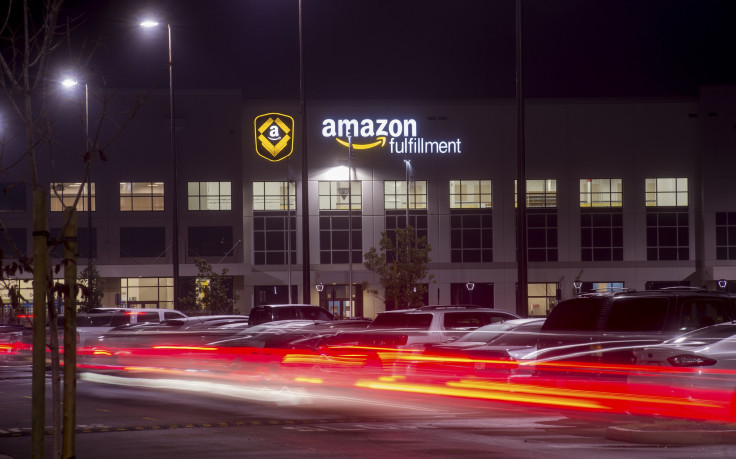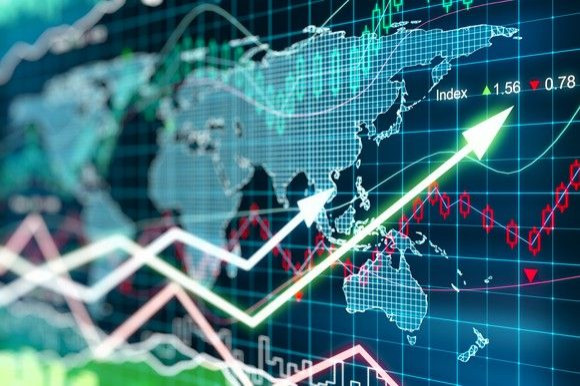Amazon Stock Upgraded: What You Need to Know

This article originally appeared in the Motley Fool. Read the original article.
Every day, Wall Street analysts upgrade some stocks, downgrade others, and "initiate coverage" on a few more. But do these analysts even know what they're talking about? Today, we're taking one high-profile Wall Street pick and putting it under the microscope...
Amazon.com (NASDAQ:AMZN) stock is on a roll -- and all systems are go.
Up 74% over the past 12 months already, Amazon stock is rising again this morning as analyst Wolfe Research announces a new upgrade for the e-tailer's stock. Predicting that Amazon will hit $2,000 a share before this year is over, the New York City-based research house says investors who buy today could end up sitting on more than a 33% profit by year-end.
Here's why.

"Get Grocery Right"
By now you've probably heard all about Amazon Go, Amazon's futuristic concept for how grocery stores should be run -- with no cashiers or registers. Just walk right in, grab what you need, and walk back out (and be billed electronically later).
What you may not have heard is that barely a month after opening its first Amazon Go store in Seattle, Recode reports the company is planning to open up to six more, adding locations in Seattle and Los Angeles.
This may sound like Amazon is moving too fast, doubling down on a bet before it's had time to find out for sure if the first Amazon Go store works. But in fact, Amazon has spent the past four years fine-tuning the concept before ever opening its first store. Plus, through its acquisition of Whole Foods, it already has a physical footprint of more than 400 stores.
Wolfe Research believes that if Amazon can "get grocery right," it will turn physical retailing into the new growth driver for Amazon -- which is already the undisputed king of e-commerce. The analyst predicts that if Amazon succeeds in the grocery market, which consumers use every day, it will create a "halo effect on spending" at Amazon's other businesses -- benefiting sales across the Amazon universe.
Growth -- And Profits
And that's not all. As Wolfe explains in a note covered on StreetInsider.com today, if sales growth in grocery creates knock-on effects at Amazon's other businesses, this could turn the company into a more efficient operation overall.
Currently, Amazon as a whole earns just $2.30 in operating profit for every $100 in revenue it collects. (At a more granular level, the company's Amazon Web Services unit earns much more than that, its international business loses money, and the flagship North America business is closest to the average, earning $2.67 per $100 in revenue, according to data from S&P Global Market Intelligence.)
By 2028, though, Wolfe believes the "halo effect" could enable Amazon to triple its North America profit margin to 8%.
What It Means For Investors
Admittedly, Amazon hasn't reached that high level of profitability yet, and may not ever. After all, Jeff Bezos's famous refrain -- "your margin is my opportunity" --doesn't really imply that growing profit margins dramatically is part of his game plan. And if profits do not grow dramatically, it may be hard for investors to justify paying the high price that Amazon stock commands today -- currently 240 times trailing profits.
Additionally, Wolfe Research's note this morning focuses on just one aspect of Amazon's business -- the North American retailing operations. It does not predict a tripling in the profitability of AWS (which by the way, if it did, would mean profit margins of 75%). Nor does it expound upon how soon Amazon might succeed in eliminating the cash drain of its money-losing international operations.
Still, tripling the profitability of just those North America sales, which still generates more revenue than Amazon's two other major business divisions combined, should mean more than twice current-day levels of profitability for Amazon -- and on a presumably much larger revenue base, 10 years out. In Wolfe's opinion, this makes Amazon stock worth about 33% more than investors are currently paying for it.
Personally, I think that's a bit too aggressive a target, and a bit too closely tied to the (as yet unproven) success of what is, currently, just a small sliver of Amazon's retail empire.
10 Stocks We Like Better Than Amazon
When investing geniuses David and Tom Gardner have a stock tip, it can pay to listen. After all, the newsletter they have run for over a decade, Motley Fool Stock Advisor , has tripled the market.*
John Mackey, CEO of Whole Foods Market, an Amazon subsidiary, is a member of The Motley Fool's board of directors. Rich Smith has no position in any of the stocks mentioned. The Motley Fool owns shares of and recommends Amazon. The Motley Fool has a disclosure policy.





















